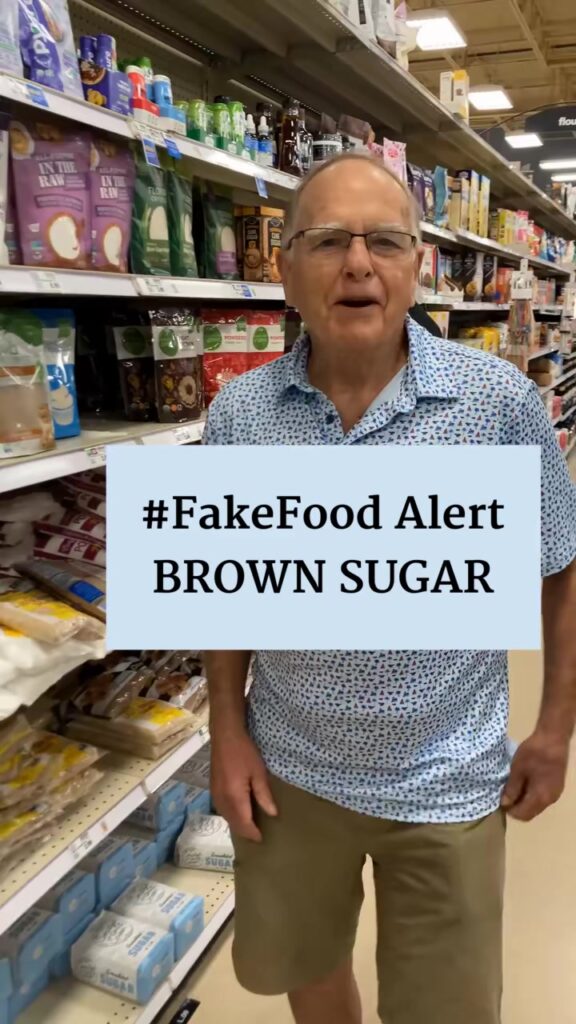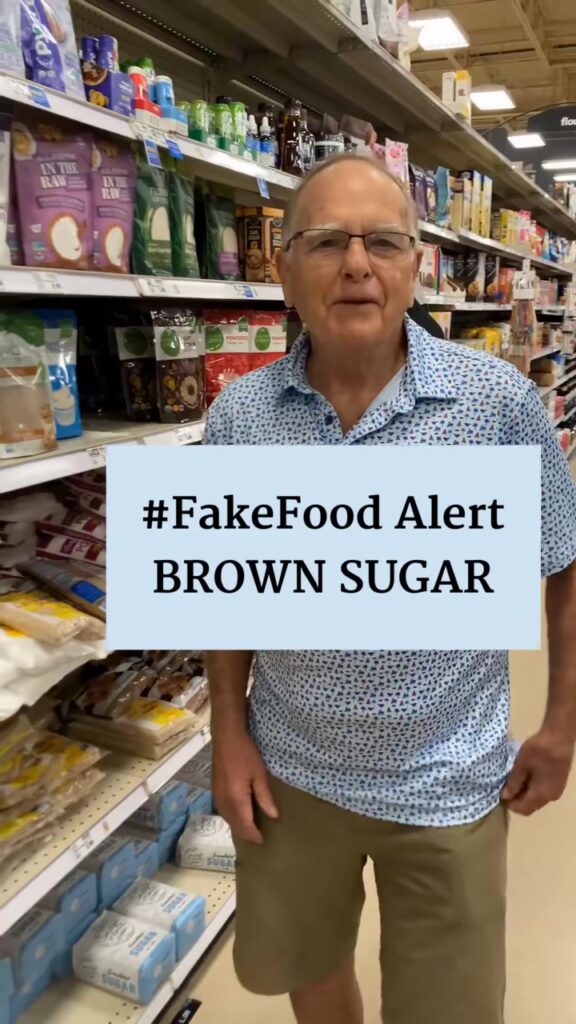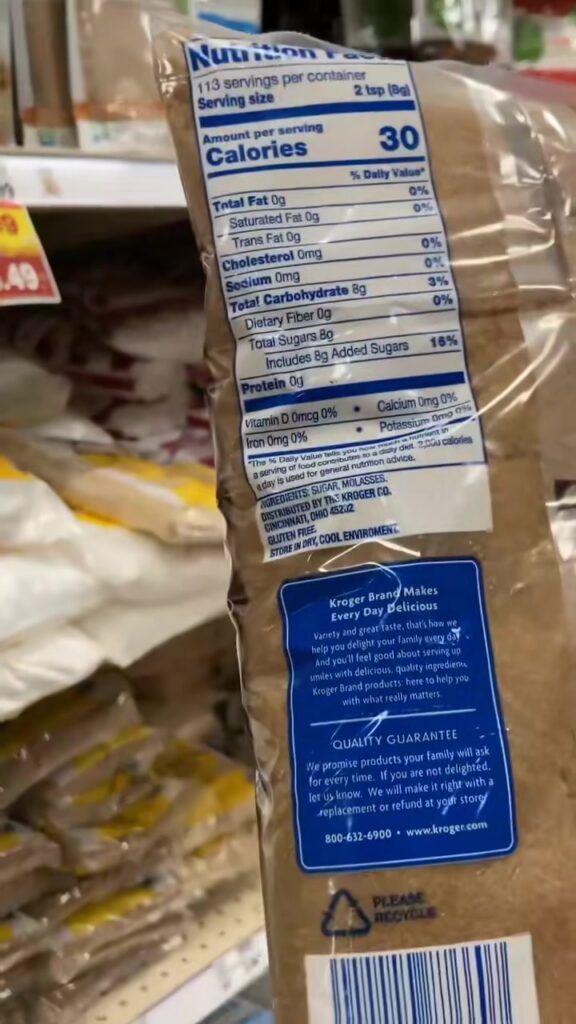Fake Food Alert: Brown Sugar
#baking #cooking #holistic #holistichealth #holistichealing
When it comes to baking and cooking, brown sugar is often seen as a more natural or wholesome alternative to white sugar. Its rich flavor and warm color make it a favorite in cookies, sauces, and marinades. But here’s something most people don’t realize: most brown sugar sold in stores isn’t as “natural” as it seems. In fact, it’s often just white sugar with a little molasses added back in—making it a prime example of fake food.
What is Brown Sugar, Really?
Traditionally, brown sugar was less refined cane sugar that naturally retained some of its molasses content. But in modern commercial processing, brown sugar is typically just refined white sugar with molasses (a by-product of sugar refining) added back in. This means it undergoes heavy processing and then gets re-colored and flavored to give the appearance of being more wholesome.
From a holistic or whole-foods perspective, this practice is misleading. The brown sugar you buy in a standard grocery store is not closer to nature—it’s a reconstructed product that only looks like it came straight from the cane.
Why It Matters
In holistic health, we strive to eat foods that are as close to their natural state as possible. This means minimizing exposure to overly processed or artificial ingredients. While brown sugar isn’t synthetic in the way artificial sweeteners are, it’s still a refined, manipulated product that doesn’t align with whole-food principles.
Additionally, both white and brown sugar have similar effects on blood sugar levels and metabolic health. They spike insulin, can contribute to inflammation, and offer no real nutritional benefits. The trace minerals found in molasses (like calcium, iron, and potassium) are present in such small amounts in brown sugar that they offer negligible health value.
Natural Alternatives to Brown Sugar
If you’re looking to sweeten your food in a healthier, more holistic way, here are a few natural options to consider:
- Raw Honey: A true whole food when unfiltered and unpasteurized, honey offers antioxidants and enzymes along with its sweetness.
- Maple Syrup: Pure maple syrup is less processed and contains some beneficial minerals. Choose Grade B for higher nutrient content.
- Coconut Sugar: Made from the sap of the coconut palm, it has a lower glycemic index than cane sugar and contains small amounts of nutrients.
- Date Sugar: Made from ground, dried dates, this option retains the fiber and nutrients of the whole fruit.
These natural sweeteners aren’t perfect—they still contain sugar—but they are more aligned with a holistic lifestyle than reprocessed brown sugar.
What You Can Do
If you must use brown sugar in a recipe, consider making your own by mixing organic white sugar with a small amount of organic molasses. This gives you control over the ingredients and avoids the additives and anticaking agents sometimes found in store-bought brown sugar.
Better yet, start adjusting your taste buds to appreciate less sweetness overall. Reducing your dependence on sugar not only improves physical health but can also help balance mood and energy—key pillars in holistic wellness.
Final Thoughts
Next time you reach for a bag of brown sugar, take a moment to think about what’s really inside. Just because it’s brown doesn’t mean it’s better. When you’re committed to holistic health and healing, it’s important to look beyond labels and understand the truth behind the food you eat. Choosing real, minimally processed sweeteners—or reducing your sugar intake altogether—can be a sweet step toward better health.















